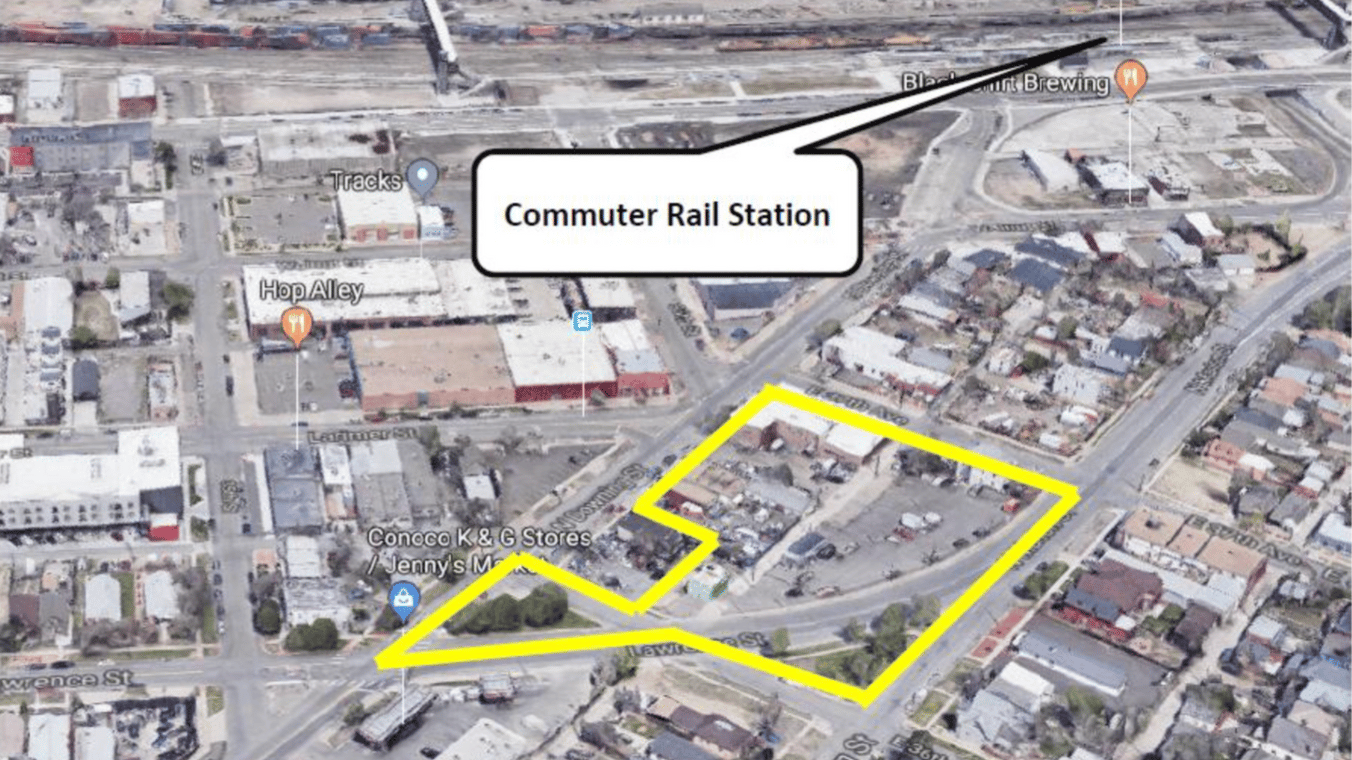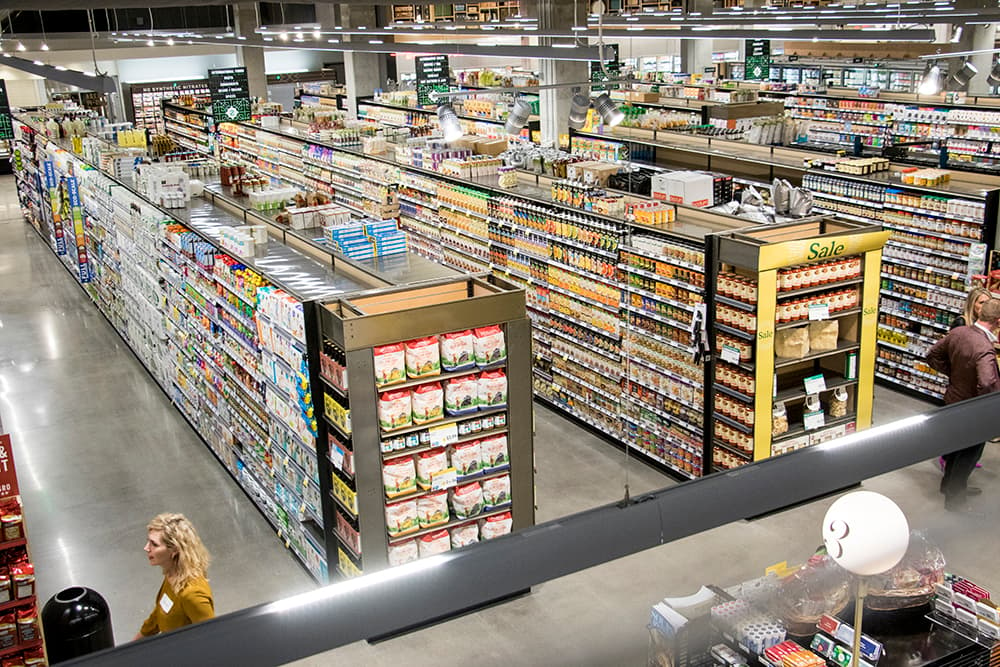It's official: Cole is poised to get a grocery store and 200 new homes.
The Denver City Council approved new land guidelines Monday that will let developer EXDO Properties build the 30,000 square foot supermarket with apartments on top a few blocks from the 38th and Blake RTD station, the 30th and Downing RTD station, and the No. 12 bus route.
The store will provide an oasis in one of Denver's many food deserts. A doll shop, a used car lot and an auto repair shop currently inhabit the block.
The landowner, Andrew Feinstein of Cole, will reserve 20 of the homes for people who aren't rich -- households making 60 percent of the area's average income or less. That's $54,000 for a household of four and $38,000 for one person.
The new-look block will rise up to five stories, a height allowed because EXDO will provide affordable housing (more homes than are required by a city incentive, in fact).

Oh, and the original street grid around 36th and Downing will be restored. Because the developer bought a street.
The block will eat up Lawrence Street where it swoops between Downing and Marion. Those roads will become two-way, which calms traffic and aligns with a 2009 city plan for the area to make the neighborhood safer for walking and biking.
"About a month ago, I sold my car and I've never understood the need to have a store so close to me better," said Isaac Dominguez, a resident who supported the project during a public hearing Monday. "As I ride a block or as I scoot, this street is very dangerous."
EXDO's project received a lot of support from residents thirsting for a grocery store in a food desert. Some were thrilled to have the affordable housing, others were thrilled to have about 100 new local jobs between two RTD rail stations.
"My mom can possibly walk to this grocery store from her residence where she lives right now," said Darrell Watson, a longtime Whittier resident.
Three registered neighborhood organizations in the area support the change, which was initiated by City Councilman Albus Brooks, along with more than 130 people who wrote elected officials and spoke Monday night. Four residents sent letters opposed to the loss of mature trees and "green space," and two people spoke against the plan because they feared rising property values and displacement.
City Councilman Rafael Espinoza voted for the rezoning but echoed comments about displacement. He urged residents to remember that the gentrifying neighborhood was a food desert long before wealthier residents moved in, and said the city can do more to lure grocery stores.
"Gentrification is in fact happening, and with affluence coming to the area, these food deserts are more attractive for groceries to come into," Espinoza said. "This city could budget and have helped address this problem sooner rather than now."
Brooks, who abstained from the measure because he was a sponsor, disagreed. He's been working on this project for years, he said.
"It doesn't matter how much money we as a government put into grocery stores, it is their decision to come into a neighborhood," Brooks said. "And yes, the matrix changes as the neighborhood changes, but I think to somehow believe it's the city's responsibility to bring in a grocery store... it's a very complex issue."
The final vote was 10 to 0 with Brooks abstaining. City Councilwomen Robin Kniech and Debbie Ortega were absent.
This article was corrected to reflect the number of people opposed to losing green space.












